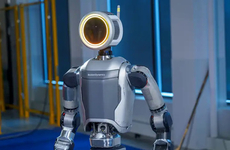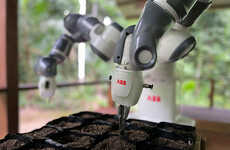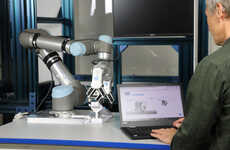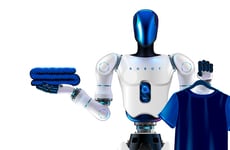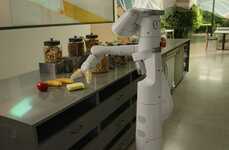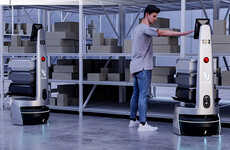
These Collaborative Robots Work Together On Construction Tasks
Rahul Kalvapalle — June 2, 2015 — Tech
References: newsoffice.mit.edu & gizmag
Researchers from MIT are developing an algorithm that allows collaborative robots that effectively work together on construction tasks, significantly reducing the amount of time needed to plan construction operations.
The issue with current construction robots is that they are perfectionists, and insist on getting things right the very first time. Existing algorithms require that machines complete all their tasks in a single step without leaving out any components. This leads to a lot of wasted time in search of optimum performance. The new robots perform tasks in multiple steps that complement those of their fellow robots.
While robots have been doing incredible things for a long time now, there haven't really been any robots capable of working autonomously in completely unfamiliar and novel environments, until now. These robots could in fact go on to revolutionize the construction industry.
The issue with current construction robots is that they are perfectionists, and insist on getting things right the very first time. Existing algorithms require that machines complete all their tasks in a single step without leaving out any components. This leads to a lot of wasted time in search of optimum performance. The new robots perform tasks in multiple steps that complement those of their fellow robots.
While robots have been doing incredible things for a long time now, there haven't really been any robots capable of working autonomously in completely unfamiliar and novel environments, until now. These robots could in fact go on to revolutionize the construction industry.
Trend Themes
1. Collaborative Construction Robots - The development of algorithms for collaborative construction robots presents disruptive innovation opportunities for the construction industry.
2. Efficiency in Construction Operations - The ability of collaborative robots to perform tasks in multiple steps can significantly reduce planning time and optimize construction operations.
3. Autonomous Robots in Novel Environments - The emergence of robots capable of working autonomously in unfamiliar environments opens up opportunities for revolutionizing various industries, including construction.
Industry Implications
1. Construction - The construction industry can benefit from implementing collaborative construction robots and the associated algorithms to improve efficiency and productivity.
2. Robotics - The development of collaborative robots and algorithms for construction tasks presents opportunities for innovation and advancement in the robotics industry.
3. Artificial Intelligence - The integration of AI algorithms into collaborative construction robots can lead to disruptive innovation in the field of artificial intelligence and its applications in various industries.
2
Score
Popularity
Activity
Freshness


